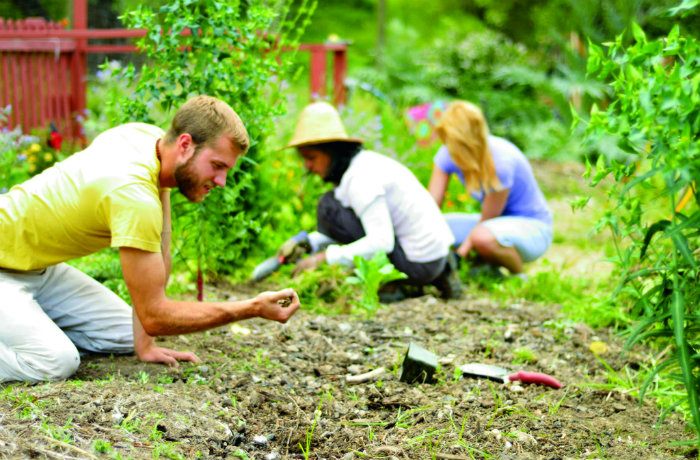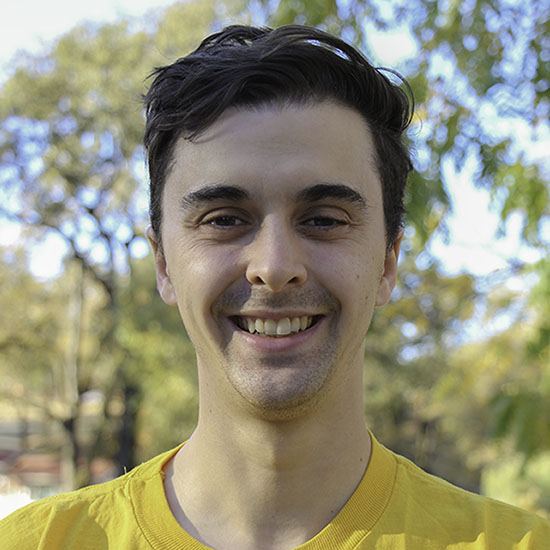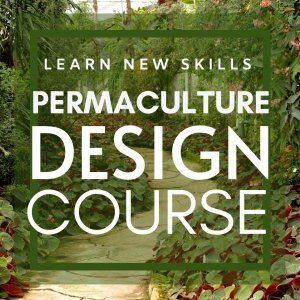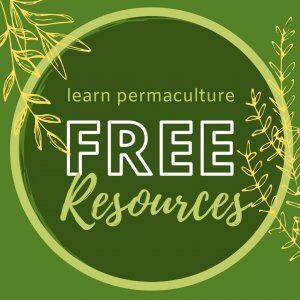
Intro to Permaculture
Both are about living in harmony and creating balance. Permaculturists can grow food just about anywhere, repair environmentally-damaged lands, design lovely and long-lasting green-buildings, produce power, run successful people-oriented businesses, and build authentic community. All by using fundamental permaculture principles and applying the three Permaculture Ethics:
Care of Earth
Share the Surplus
We as humans have the ability to re-design the world we live in. All it takes is desire, know how, will, and time. Even if it takes 50-100 years, the change can begin with each one of us right now and the effects of our work will have beneficial consequences for generations. Consider this: The ratio of tensile strength-to-density of spider silk is approximately 5 times greater than that of steel, while a single thread, wrapped around the earth, would weigh only 1 pound (16 oz.). The amount of sunlight that intersects our earth in 40 minutes is equivalent to the total, global-annual-consumption of energy. Permaculturists look at facts such as these and ask the question, ‘If there is that much energy available, and if a spider can make something so strong simply by eating crickets, what kind of world can we create for ourselves and our neighbors if we work hand-in-hand with the natural systems surrounding us?’
The goal of permaculture is to create harmonious relationships with all aspects of our life, to learn how to live abundantly well without hurting or polluting our surroundings and actually leave the planet in better condition than when we arrived on it. To be clear, permaculture is a lot more than just food production. A thorough study of permaculture invites us to look at our homes, our uses and sources of energy, our methods for providing food and comfortable shelter, our work, our relationships with others, and even our relationship with ourselves.
Colin has been a Permaculture enthusiast and advocate since 2011. He enjoys sharing teachings on design, principles, ethics, medicinal plants, edible forestry, ecology, and sacred regenerative knowledge. His goal is to spread seeds of awareness and inspiration for people to bring collective healing to each other and the planet. He completed a Permaculture Design Certificate, 200-hour Yoga Teacher Training, and Gentle Yoga Teaching Training at the Sivananda Yoga Farm and has been teaching and designing ever since.
Speaker
-
 Colin Eldridge
Colin EldridgeColin Eldridge
Colin is a trained Permaculture Designer and has a BA in Environmental Studies from Hampshire College. He is a graduate of the Permaculture Institute Diploma program and is also a certified Yoga Therapist. He teaches participatory and interactive workshops around topics such as Yoga, permaculture, art, social justice, nature awareness, holistic living, wellbeing and ecology.
He taught a permaculture class at Hampshire College in 2015 and was an Environmental Educator and Naturalist with The Great Basin Institute in 2017. He has also taught both Yoga and Permaculture at many events and with many other organizations such as The NorCal Permaculture Convergence, San Francisco Sivananda Yoga Vedanta Center, Divine Grace Yoga Ashram and more.


